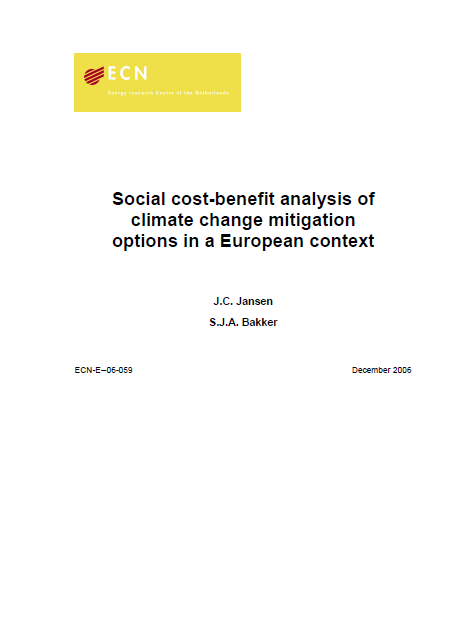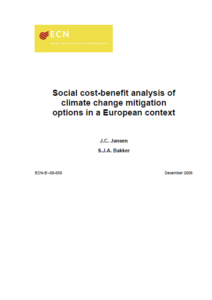Reports Database:
Social cost-benefit analysis of climate change mitigation options in a European context

 “In the current design of international climate change policy, a narrow application of social cost-benefit analysis with emphasis of short-term efficiency of resource allocation appears to be the leading criterion. This explorative study sets out to integrate – from a societal perspective – in cost-benefit analyses of climate policy measures long-term impacts to the extent possible. Externalities such as favourable impacts on air pollution problems and energy supply security risks are included in the proposed analysis framework. The objective of this explorative study is to compare different greenhouse gas abatement options on the basis of a social cost-benefit analysis with a view to inform the policy-making process. The numerical application of the proposed analysis framework focuses on ten technical measures in three different sectors: energy and industry, transportation and buildings. Quantification of externalities of air pollution is based on literature approaches and for impacts on energy security of supply risk a novel approach is suggested. The results are given in monetary value ranges and show that taking into account ancillary externalities can significantly change the net social cost of certain mitigation options and the net social cost of a given climate change programme.”
“In the current design of international climate change policy, a narrow application of social cost-benefit analysis with emphasis of short-term efficiency of resource allocation appears to be the leading criterion. This explorative study sets out to integrate – from a societal perspective – in cost-benefit analyses of climate policy measures long-term impacts to the extent possible. Externalities such as favourable impacts on air pollution problems and energy supply security risks are included in the proposed analysis framework. The objective of this explorative study is to compare different greenhouse gas abatement options on the basis of a social cost-benefit analysis with a view to inform the policy-making process. The numerical application of the proposed analysis framework focuses on ten technical measures in three different sectors: energy and industry, transportation and buildings. Quantification of externalities of air pollution is based on literature approaches and for impacts on energy security of supply risk a novel approach is suggested. The results are given in monetary value ranges and show that taking into account ancillary externalities can significantly change the net social cost of certain mitigation options and the net social cost of a given climate change programme.”
